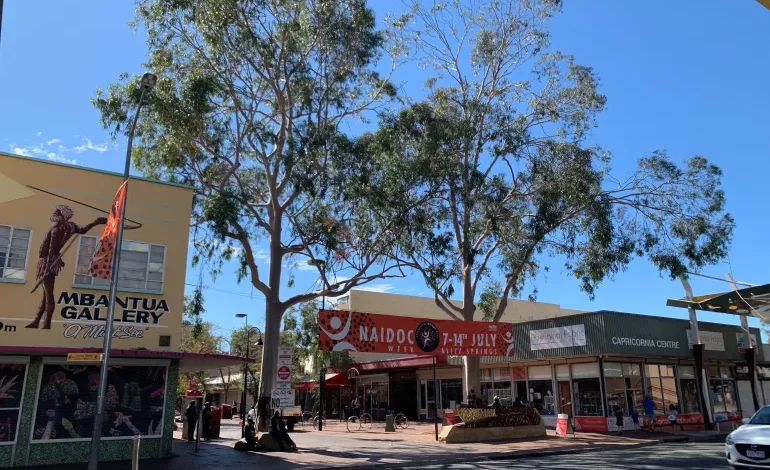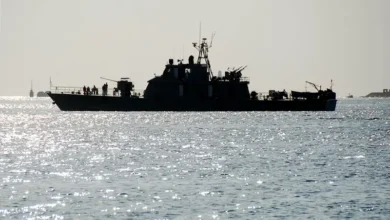In Australia’s outback, youth crime stymies efforts to get tourism on track

For Ben Hall, the CEO of tour bus operator AAT Kings, business lately has been tough.
He says visitors are not booking tours to Uluru, a huge sandstone monolith that is the most famous attraction in Australia’s vast Northern Territory, in the numbers they used to.
“We’ve certainly seen the trips from Alice Springs to Uluru have been a little bit softer,” Hall, who operates a fleet of about 30 buses focusing on tours to Uluru, told Al Jazeera.
“We’ve added a couple of new short break itineraries for this year into the region…but certainly it’s been tough trading.”
Tour and car rental companies across Australia’s Red Centre, as the country’s vast outback region is often called, have reported a similar drop-off in business.While tourism operators attribute the decline to a number of factors, most agree that part of the cause is escalating youth crime in Alice Springs, a remote town of some 40,000 people that serves as a base for visitors to outback attractions such as Uluru.
In the past two years, youth crime in the town has captured national media attention and stoked political turmoil at the both federal and state government levels, even though crimes by minors have also risen nationwide.
Prime Minister Anthony Albanese, who leads the centre-left Labor Party, has made several visits to the town to highlight his government’s efforts to tackle the issue.
In March, and again in July, the Northern Territory government implemented curfews banning minors from the town centre at night following a series of violent attacks.
The rise in crime has drawn particular attention to Alice Springs in the media as it came after the Northern Territory government ended a 15-year alcohol ban in remote Aboriginal communities in late 2022.
In 2007, Australia’s federal government implemented a series of interventions in the Northern Territory, where about one-third of the population is Indigenous, in response to a territory government report that found evidence of widespread child sexual abuse in remote Aboriginal communities.
The federal interventions, which some rights groups criticised as racist and discriminatory, included a blanket ban on alcohol in remote Aboriginal communities that was extended by successive territory governments.
After the alcohol ban was lifted, a series of high-profile violent incidents in Alice Springs, including teenagers stealing vehicles and attacking police cars, made headlines across the country.
In the year ending November 2023, violent offences by youths rose to 1,182, a 50 percent rise compared to 2019-20, according to the Northern Territory’s Department of the Attorney-General and Justice.
After accounting for population change, the overall youth offender rate decreased from 2,855 to 2,819 offenders per 100,000 persons in 2022–23, according to the Australian Bureau of Statistics, although part of that decrease can be explained by the government’s decision in August 2023 to raise the age of criminal responsibility from 10 to 12.
Local police warned residents to avoid visiting the town centre, and the Northern Territory government reintroduced a ban on alcohol sales in January 2023.
While the uptick in crime has prompted politicians to action, some community leaders and legal experts have criticised the territory government for implementing “draconian” policies, such as curfews, that could further stigmatise Indigenous communities.
Human rights groups have also accused police of targeting Indigenous people in the territory, which has one of the highest rates of incarceration in the world.
Last month, the newly elected Northern Territory government lowered the age of criminal responsibility from 12 to 10, prompting concern among community leaders that Indigenous teenagers will be locked up at even higher rates.
North Australian Aboriginal Justice Agency, a not-for-profit legal service, noted that between 2018 and 2023, the number of prisoners in the territory rose 22 percent, which it claimed was a result of young Aboriginal people being targeted by law enforcement.
Jared Sharp, a legal officer for the non-profit, said in a press release that while the public perceives a rise in youth crime in the Northern Territory, “youth justice court lodgements territory-wide have fallen for three years running”.
The focus on youth crime and subsequent crackdown have been keenly felt by tourism operators, who typically see an uptick in tourism during the dry season between April and October.










